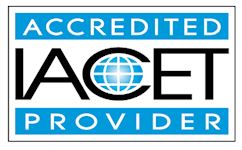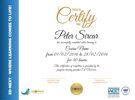A Parent's Guide to Adolescents
Ed-Next
Summary
- Exam(s) / assessment(s) is included in price
Overview
Why do they act that way? That is the question all parents of teenagers have asked themselves at one time or another. Understanding those not children, but not yet adult humans that take over the house is no easy feat. They have bad manners, contempt for authority, disrespect for elders, and spend all their time sleeping and playing video games. This course addresses what modern teens face today and delves into physiological and psychological issues that turn our loving kids into surely teenagers.
* You have 4 weeks to complete this course from date of your enrollment.
Course media
Description
After completing this course, you should be able to:
- Identify components of adolescents brains
- Recall proper communication skills and how the media influences adolescents
- Recognize the physical changes in an adolescent’s body
- Recall some guidelines for helping teens through emotional changes
A Parent's Guide to Adolescents Module 1
Adolescent Brains & Impulsiveness
In Module 1 we will explore the gap that forms between adolescents and their parents. We will delve into the adolescent brain and identify how teens change physically, mentally, and emotionally during the adolescent years.
- Making Sense of Adolescence
- What Adolescents Face Today
- The Gap Between Parents and Their Kids
- Appreciating Adolescents
- Physical Changes in the Teen Brain
A Parent's Guide to Adolescents Module 2
Communication & Sexual Identity
In Module 2 we will focus on communicating with the adolescent. Tips and tools for learning good communication skills will be shared. Also, we will identify the trials teens face while exploring his or her sexual identity during adolescents and list some effective tools for addressing sexual identity with teens.
- Parent-Adolescent Miscommunication
- Good Communication Skills
- Male and Female Brains
- Sexual Stereotyping and Identity
- Love, Sex, and the Adolescent Brain
A Parent's Guide to Adolescents Module 3
Media, Sleep, & Mental Illness
Module 3 describes the physical changes in an adolescent’s body and addresses why teens sleep patterns tend to change during these years. Another important topic discussed in this module is mental illness in teens. How to know if your child is testing his or her boundaries or if there may be an underlying factor that may require intervention.
- Adolescents and Media
- Media Use
- Media in Teens’ Lives
- Sleep and the Teen Brain
- Adolescent Mental Illness
A Parent's Guide to Adolescents Module 4
Psychological & Social Dimensions of Adolescence
Module 4 will define how teens react to the physical changes that take place during adolescents and give parents/adults some guidelines on the best way to help teens through these changes. Emotional changes are also discussed and finally, peer relationships and the important influence friends have on the adolescent.
- Four Major Changes
- Reactions to Physical Changes
- Reactions to Emotional Change
- The Shift of Influence from Parents to Peers
- The Search for Identity
Ed4Online has been approved as an Accredited Provider by the International Association for Continuing Education and Training (IACET). In obtaining this accreditation, Ed4Online has demonstrated that it complies with the ANSI/IACET Standard which is recognized internationally as a standard of good practice. As a result of the Accredited Provider status, Ed4Online is authorized to offer IACET CEUs for courses and programs that qualify under the ANSI/IACET Standard.
You will earn 2.4 IACET continuing education credits by completing this Ed4Online course. This course is 24 contact hours which equals 2.4 CEUs based on the IACET standard. The International Association of Continuing Education and Training is the highest quality worldwide standard for Continuing Education Unit.
The Continuing Education Unit (CEU) was created by IACET as a measurement of continuing education. One (1) IACET CEU is equal to ten (10) contact hours of participation in an organized continuing education experience under responsible sponsorship, capable direction, and qualified instruction. Under IACET's care, the IACET CEU has evolved from a quantitative measure to a hallmark of quality training and instruction.
Who is this course for?
Anyone interested in child development
Requirements
No prior qualification required
Career path
Application of principles learnt in this course
Reviews
Currently there are no reviews for this course. Be the first to leave a review.
Legal information
This course is advertised on reed.co.uk by the Course Provider, whose terms and conditions apply. Purchases are made directly from the Course Provider, and as such, content and materials are supplied by the Course Provider directly. Reed is acting as agent and not reseller in relation to this course. Reed's only responsibility is to facilitate your payment for the course. It is your responsibility to review and agree to the Course Provider's terms and conditions and satisfy yourself as to the suitability of the course you intend to purchase. Reed will not have any responsibility for the content of the course and/or associated materials.




